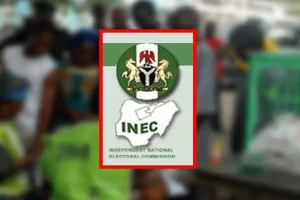The House at plenary presided over by the Deputy Speaker, Ahmed Idris Wase, directed the mover of the motion, Hon. Ben Igbakpa, from Delta State to “follow proper procedure.”
The House of Representatives, at the plenary last week, resolved to file a motion for overriding President Muhammadu Buhari for failing to assent to Clause 84(8) of the Electoral Act (Amendment) Bill, 2022, which provides for Statutory Delegates.
Why are Reps trying to amend the Electoral Act again?
This move, came on the heels of mass failure of majority of lawmakers currently serving in the Senate and House of Representatives to secure their return tickets at the political parties primaries held last month.
Following unsuccessful attempts to amend the Electoral Act in previous assemblies, lawmakers in the 9th National Assembly successfully amended the act, though they also had an initial setback over the decision to make the direct mode of primary compulsory for political parties in 2021.
President Buhari, however, withheld his assent, citing the cost of conducting direct primary elections, security challenges, others issues and therefore insisted on direct, indirect and consensus as modes for selection of candidates for elective positions by political parties.
The House thereafter re-amended the law to include the direct the options while the Senate included direct, indirect, and consensus modes. President Buhari signed eventually signed the Bill into law on February 25, amid outcry over his delayed assent to the legislation.
While political parties were close to conducting primaries to elect candidates for the 2023 general elections, the lawmakers realized that the Act did not provide for members elected into public offices and executives of the parties, known as statutory delegates, to participate and vote in the conventions, congresses or meetings of parties.
This means that without the provision by the law, President Buhari; Vice-President Yemi Osinbajo, members of the National Assembly, governors and their deputies, members of the State Houses of Assembly, chairmen of local government areas, councillors, executives of political parties, amongst others, would have been deprived of the rights to vote.
Convening for a special session on May, 10 and 11, both chambers re-amended the law to recognize statutory delegates at primaries, congresses, and conventions of political parties.
However, after National Assembly, on May 13, transmitted the bill to the President for assent, Buhari had yet to sign the amendment bill into law. With the President’s refusal to assent to the Bill, the party primaries were held by May end with statutory delegates not allowed to vote.
As the primary elections took place nationwide, many lawmakers in both chambers of the National Assembly totalling over 200 in number lost the opportunity to return and vice versa. However, while some did not seek reelection or withdrew from the race, there are also those who won’t be returning because they won their tickets to pursue their governorship ambition in their respective states.
Who are Statutory Delegates?
Otherwise known as automatic delegates, the statutory delegates vote in primaries alongside ad hoc delegates – the second group who are elected during congresses across the wards in each state.
When amending Nigeria’s Electoral Act, the National Assembly passed a bill – now signed into law – making it mandatory that all delegates for primaries must be elected for that purpose. By doing so, the lawmakers stripped public office holders in the party of the privilege long enjoyed by those voting in the primaries as statutory delegates, as they are so-called.
These statutory delegates include:
- The current president and vice-president and the former office holders
- Governors and their deputies
- Senators, members of house of representatives and of state assemblies
- Local government chairmen and their deputies
- Ward councillors
- Chairman of the party in all the 774 local government areas
But here is the thing: That amendment excluding the statutory delegates from voting was done in “error”, federal lawmakers admitted, with intense lobbying now going on for the president to sign a new amendment bill that brings that provision back.
Senators affected by Section 84(8)
In the upper chamber, three members which includes Senate President Ahmad Lawan, Deputy Whip Ajayi Boroffice and Senator Ibikunle Amosun won’t be returning as they chose to contest for presidency, they however lost the ticket to former Lagos Governor Bola Ahmed Tinubu.
“It is important to enable every statutory delegate to vote,” said Lawan, one of the favourites in the race for the APC presidential ticket. He is believed to be among those to be worst hit by the absence of statutory delegates in the primaries as that would mean the exclusion of National Assembly members he hoped would have voted for him.
Now Lawan faces the challenge of not even holding his senatorial position for his party as it was won over by another candidate.
Senators who won governorship tickets
Deputy Senate President, Ovie Omo-Agege (APC, Delta Central); Uba Sani (APC, Kaduna State); Teslim Folarin (APC, Oyo Central) and Senator Sandy Onor (PDP, Cross River State); Aishatu Dahiru Ahmed (APC – Adamawa Central) and Emmanuel Bwacha (APC, Taraba South).
Senators who withdrew from the governorship race in their states
Senate Minority Leader Enyinnaya Abaribe (PDP, Abia State); George Sekibo (PDP, Rivers East); Gershom Bassey (PDP, Cross River South); Senate Leader Yahaya Abdullahi (APC, Kebbi North); Yusuf Yusuf (APC, Taraba Central); James Manager (PDP, Delta South); and Senator Ike Ekweremadu (Enugu West).




















Add Comment